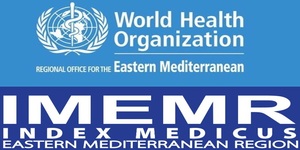Postnatal Depression among Women in Mosul City
DOI:
https://doi.org/10.36321/kjns.vi20142.2564Keywords:
postnatal, depression, women, EPDSAbstract
Background: Women around the world experience many physical and mental changes during pregnancy and
even few months after birth. Postnatal depression (PND) is an example of these changes. PND is defined as nonpsychotic and an affective mood disorder affected woman after birth and may continue for months. Several
researches in Arabic countries reported that the incidence of PPD among Arabic Muslim women ranges between
10% to 37%.
Objectives: The aim of the present study was to assess the postnatal depression among women in Mosul city and to investigate the impact of age, parity, and infant gender factors.
Methodology: A descriptive study was adopted as a quantitative approach for the present study. A sheet of demographical data was structured to use with Edinburgh Postnatal Depression Scale (EPDS) as a tool of the research to collect data. Each question has four choices scored (0-3). Seventy postnatal women were the study sample. The study conducted in AL-Khansa'a Teaching Hospital and AL-Batool Teaching Hospital in Mosul city in 1st December 2012 to 1st April 2013. A standard statistical package for social sciences (SPSS version 18) was used for data analysis.
Results: The present study found that 50% of the total sample were aged between(26-35) years,75.7 % of participants were unemployed, 58.5% of them were primiparous women. The criteria of selecting infant gender
were 50% for male and 50% for female. The present study shows that women's educational levels were 48.5%
primary school and 5.7% of respondents have history with some types of psychiatric problems, 61.4% of them
have no history of abortion and 22.9% have history of preterm delivery. The results find in totally that around
65.7% of participants have scored between (0-12) depending on EPDS and 22.9 % of 41.4% of mothers aged
between (16-25) years have scored (13-30). The results also find that 21.4% of 30% of the participants were
primiparous women with symptoms of postnatal depression. Finally, 18.6% of 24.3% were the mothers who
have delivered female, and they have symptoms of PND.
Conclusion: The study concludes that there is an obvious relationship between the occurs of PND and women's age, child parity, and infant gender although the most participants mothers indicate no symptoms or on the borderline of symptoms of PND depending of EPDS.
Recommendations: The study recommends that mothers care and welfare centers should educate pregnant women during their visits about the mentally and physically changes that exist during pregnancy and after birth. In addition, provide social group therapy or social support to mothers during the first few days or months of postpartum to prevent PND.
Downloads
Downloads
Published
How to Cite
Issue
Section
License
Copyright (c) 2015 Salwa H. Ghelan Eman Salim Zeyad Tariq

This work is licensed under a Creative Commons Attribution 4.0 International License.













